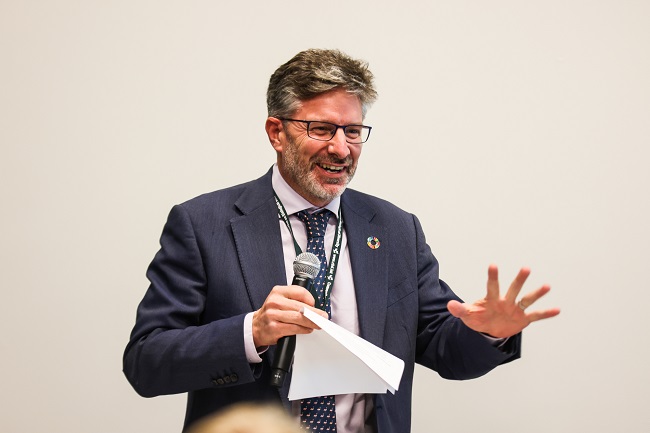The Intergovernmental Platform on Biodiversity and Ecosystem Services (IPBES) has announced the selection of three world-class scientific experts to lead the “Second Global Assessment” of biodiversity and ecosystem services – expected to be published in 2028.
The Second Global Assessment will be a landmark multi-year undertaking to provide decision makers around the world with the best available evidence, knowledge and policy options about biodiversity and ecosystem services. It will be the follow-up report to the seminal 2019 IPBES Global Assessment, which alerted the world to the fact that a million species of plants and animals now face extinction, identified and ranked the most important direct drivers of biodiversity loss, and provided the state of knowledge underpinning subsequent agreement on global ambitions for biodiversity.

The Second Global Assessment will assess relevant knowledge that has become available since the 2019 publication, and will explore progress towards achieving the range of global goals and targets relating to sustainability and living in harmony with nature in advance of the 2030 deadline for many of these commitments. The Second Global Assessment will also strengthen the science-policy interface on biodiversity and nature’s contributions to people across a range of spatial scales, from local to global, by providing knowledge and evidence for better informed decision-making.
Prof. Nicholas (Nick) Otienoh Oguge (Kenya), Dr. Rebecca (Becky) Chaplin-Kramer (United States), and Prof. Zhi Lü (China), have been appointed as co-chairs of the assessment. They will lead and steer a balanced, interdisciplinary team of more than 120 experts undertaking the assessment, which will be announced by IPBES in the coming weeks.
The assessment will also highlight and synthesise the findings of prior IPBES assessments relating to the differing roles of a variety of actors and their value systems in delivering the building blocks for transformative change. The authors will address areas highlighted as gaps in the first Global Assessment as well as emerging issues.
Some countries have encountered significant challenges in responding and contributing towards global objectives and targets such as those of the Kunming-Montreal Global Biodiversity Framework. This assessment will examine these challenges while also showcasing progress made, identifying the enabling conditions behind successful outcomes. It will point to ways of overcoming obstacles so that effective approaches can be scaled up across different contexts.
Making the announcement of the co-chairs, IPBES Officer-in-Charge, Neville Ash, said: “The Second Global Assessment will be one of the most complex, extensive and significant environmental assessments ever undertaken – with great relevance and value to decision makers around the world and in every context, for people and nature.”
The first author meeting of the assessment is already planned for November 2025 in Paris, with a first draft of the report expected to be ready for open expert review in the first half of 2026.
